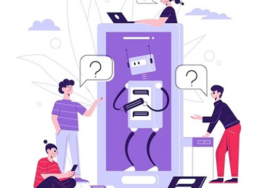
Generating Change: Strategies for Achieving Your Goals
“Transform your life and make a difference with Generating Change. Join today and start creating a better future for yourself and others.”
Our latest research report, Generating Change, surveyed 105 news organizations from 46 countries about their engagement with AI and associated technologies. This report was conducted between April and July 2023 and was supported by the Google News Initiative.
According to 73% of news companies polled, generative AI (genAI), like ChatGPT or Google Bard, offers journalism new prospects.
Around 85% of survey respondents, including journalists, technologists, and managers at news organizations, have experimented with JournalismAI to help with tasks like writing code, image generation, and authoring summaries.
AI can free up capacity for more creative work by assisting with time-intensive tasks such as interview transcription and fact-checking. An AI strategy analyst located in France remarked that GenAI can change the way we interact with information, allowing us to grasp massive amounts of data and leveling the level playing field for data talents with high and low levels.
In contrast to other AI technologies, which frequently necessitate specialist programming knowledge, AI and journalism technologies have distinct advantages like accessibility, low technical skill requirements, and the capacity to grasp “context.”
However, respondents recognize the need for human checks on AI-generated content to mitigate potential harms like bias and inaccuracy. A debunking editor at a Spanish fact-checking platform stated: “No matter how advanced AI becomes, human criteria will always be essential in the whole fact-checking process.”

Businessmen are using arrows to break a brick wall, demonstrating AI’s potential for generating change in journalism.
Over 60% of respondents expressed concerns about the ethical implications of AI on journalistic values, including accuracy, fairness, transparency, and other aspects of journalism.
Newsrooms in the Global South have more severe issues with AI integration than newsrooms elsewhere in the world. Respondents highlighted language, infrastructural, and political obstacles.
They noted that the social and economic benefits of AI tend to concentrate in the Global North, where infrastructure and resource access are better. Meanwhile, the social, cultural, and economic effects of post-independence colonialism are still being felt in many nations in the Global South.
A Filipino respondent commented that “AI technologies developed have been primarily available in English, but not in many Asian languages.” To develop AI systems that function with our native languages, we must double down on our progress.
With 80% of respondents anticipating increased AI use in their newsrooms, the report’s authors believe this is a crucial opportunity for journalists to focus on more “human” work with AI support.
Co-author and Director of JournalismAI Professor Charlie Beckett commented on the findings:

A man and a woman are working together on a laptop, exploring the intersection of AI and Journalism.
JournalismAI is undergoing another fascinating and terrifying moment of technological revolution now. According to our survey, the news media and the accuracy of the information are both potentially at risk from the emerging generative AI tools.
They also provide a fantastic opportunity to improve the effectiveness, reliability, and efficiency of journalism. This study offers a remarkable window into the journalism industry at a pivotal moment in its history.
Co-author and primary investigator Mira Yaseen added:
Engaging with over 100 media organizations of various sizes, regions, languages, missions, and business models was truly enriching. Listening to their experiences and concerns about AI integration in journalism provided valuable insights.
We’ve known that it’s a double-edged sword, like almost everything, but what became clearer in our report this year was the global AI disparity. Currently, the economic and social benefits of AI are concentrated in the Global North, while its harms disproportionately affect the Global South, exacerbating global inequality, such as algorithmic bias.
If we genuinely want to benefit from AI in an equitable manner, adopting a power-conscious approach to global AI development and adoption is imperative, which is often absent in discussions about AI. Our report addresses this in Chapter Six by focusing on the challenges faced by the global majority.









